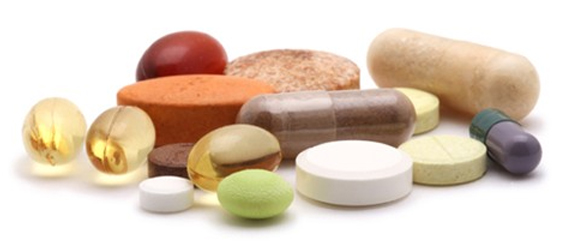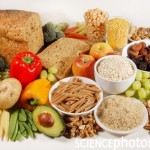By Anthoney J. Andersen – Steroidal.com
“Get jacked!” “Get yoked!” “Get ripped!”
If you’ve ever stepped foot into a vitamin store or GNC, then you’ve probably seen these phrases on various protein powders, muscle building supplements and weight gain supplements.
There are a lot of supplements that promise “10 pounds of muscle in 10 days,” or “shed your body fat percentage in no time.”
Are these just deluded promises by the manufacturers or is there some truth behind these ‘magic supplements?’
Let’s find out.
THE NITTY GRITTY
Legal steroids – known as prohormones – were removed from the shelves in 2005 by the Food and Drug Administration (FDA) due to health concerns. In response to this, manufacturers began creating natural products that would help boost the body’s natural production of testosterone.
Tribulus Terrestris
This compound stems from a fruit-producing Mediterranean plant that’s covered with spines. It’s often referred to as a puncture vine. People often use the fruit, leaf, or root of the tribulus plant as medicine, according to WebMD.
Over the past decade, people have used tribulus as a way to enhance athletic performance and to improve certain health issues like heart and circulatory conditions.
Tribulus supplements claim to help increase the natural production of testosterone, which in turn, will help increase muscle size and strength. However, according to a study conducted in the Journal of Ethnopharmacology, 21 healthy young men were given tribulus for four weeks.
The study reported that the men failed to show any notable differences in testosterone levels between those taking the supplement and those taking a placebo pill [1].
Furthermore, it’s recommended that you save your hard earned cash and avoid purchasing this herbal supplement, says Mark Moyad, M.D., director of preventive and alternative medicine at the University of Michigan Medical Center.
Possible side effects of tribulus terrestris include trouble sleeping and irregular periods in women.
DHEA
Dehydroepiandrosterone (DHEA) is the only prohormone not affected by the 2005 ban. DHEA is a hormone that comes from both the brain and adrenal gland. It’s responsible for the production of androgens and estrogen (male and female sex hormones), according to MayoClinic.
DHEA levels peak in your twenties, then slowly decline with age. A recent study in the New England Journal of Medicine failed to find any of the benefits that men expect to achieve with a muscle booster. The two-year study followed 87 men and 57 women – ages 60 and older ¾ who had low DHEA levels [2].
The study concluded that the supplements did elevate DHEA levels to normal, but no significant changes were found to support evidence that DHEA increases muscle strength and body composition.
Possible side effects of using DHEA include oily skin, hair loss, stomach upset, fatigue, headache and unfavorable changes in cholesterol levels.
Creatine
One of the most widely used muscle building supplements on the market is creatine monohydrate. Creatine is most commonly used to enhance exercise performance and increase muscle mass in athletes and older adults.
Creatine is a chemical that is naturally produced in the body, and is found mostly in muscle tissue, according to MedicineNet.com. Creatine can also be found in certain foods: fish and red meats are two of the highest sources of creatine.
Athletes find creatine especially useful during high intensity workouts because the supplement allows for an increase in energy and blood flow to the muscles, while supporting a faster recovery time following strenuous workouts.
Possible side effects of creatine include stomach pain, nausea, diarrhea and muscle cramping.
THE WRAP UP
Whether you’re a professional bodybuilder or a novice weight lifter looking to build up your physique, you’ll find a plethora of supplements that will help you achieve your goals.
The best way to find out which supplements work best – while saving you money – is to research various products and see what consumers have said regarding results.
However, keep in mind that everybody’s body is different, so what works for one person may not deliver the same results to you.
Happy hunting.
References:
[1]. “Tribulus.” 2005. October 3. Journal of Ethnophamacology.
[2]. “DHEA in Elderly Women and DHEA or Testosterone in Elderly Men.”
2006. October 19. New England Journal of Medicine.







